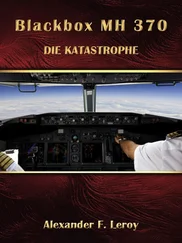Their friend, who owned a similar sailboat, had lost his family to the illness and had taken to his boat right away after that. He’d sailed in circles near Tacoma for a week before reaching his friends on the boat’s radio. The other two people on his boat were refugees they’d come across. One had been making her way to the coast south of Seattle to find a sailboat, much like we’d done. She had limited experience sailing but had determined it was her best chance to escape the carnage they described in the larger cities.
The cockpit was very crowded. Sue came to my side and looped her arm in mine as if she could read my mind, and she whispered in my ear, “Stay calm. They’ll be gone soon. Steve is going to call them all inside the cabin and make plans. You don’t have to join.”
I nodded. Looking around, the sun had come out and there were five more boats within sight. Four seemed to be heading north and turned to avoid the three of us. One puttered in wide circles and repeated the action. I assumed it was fishing. Sue agreed and put a line over.
Steve had everyone inside but came out and flashed us a look. “I asked another boat to join with us, Cap. Okay?”
I gave him another silent nod, neither agreeing nor disagreeing. My aversion to people was making itself felt.
He said, “If you don’t mind, keep your pistol ready and watch them close. It’s a forty-foot yacht with eight on board. All armed to the teeth.”
“Why let them come close?”
He appreciated my hesitation. “The one I spoke to on the radio knows a friend of mine. Not a lot of connection, but some. He knew a few things about him only a friend would know. They were heading up the other side of Whidbey and ran into two boats that turned back because of our warning.”
“A family, I asked?”
“No. Mostly men. They can provide protection for us in return for us helping them avoid the trouble with the blockade.”
Over his left shoulder, I saw the boat coming our way. My defenses rose a little more.
Steve left me to go inside and make plans. I was isolated again. Sue had slipped away while he and I talked. Her fishing pole bounced, and the line stripped out. I grabbed it and managed to land a small salmon without help.
When I turned around, the motorboat was close. Men stood on the bow; rifles held loosely in their hands.
One stood slightly alone. He was short, wide, and about forty. When the boat was fifty feet away, he asked, “You the captain?”
“Yes.”
He scrutinized me. “Don’t think us unfriendly, but we’ll keep our distance if you don’t mind.”
I nodded again. It seemed to be my way of communicating today.
He continued, “We appreciate the warning you gave us. We’re also going north to wait things out. No hurry to get there, I suppose. Safety in numbers while traveling and all that. So, if you want us to cruise along with you, we’ll be happy to do it to repay you by mutually adding our protection.”
“We’d like that. Is there anything you need that we can provide?”
“We’re good. For now. We might see a place to stop and restock that we can’t pass up, but we’ll face that when and if we find it. When are you planning on leaving?”
I jabbed a thumb at the cabin. “They’re inside figuring it out.”
He scowled slightly. “Without the captain?”
“I’m new at this.”
He chuckled, and so did a couple of others. He said, “We’re all new at this. Thanks again for the warning about the blockade, and thanks to you, there are now two fast boats down by the bottom of Whidbey Island that will intercept any others moving north and send them this way.”
“Is that why there are so many boats today?”
He turned to look behind. There were two more boats moving north. One sailboat, another a pleasure boat with a big outboard. He said, “After seeing how things are going, how we’re tearing ourselves apart and killing each other on land, I suspect a lot of people are going to grab a boat and try to get away until things calm down.”
“It seems like a lot of us,” I said glumly, thinking that the islands I thought of as isolated and almost deserted might already have hundreds of boats anchored in the bays. It might not be much better than being on land.
The man hung his head for a few seconds and then straightened his shoulder and stood taller. He said, “Maybe too many up there. The waters around those islands must be getting pretty crowded by now. We might move on up north into the Canadian islands. There’s a lot of them and I guess nobody is going to fine us for going into Canadian waters without the right paperwork, huh?”
“Okay,” I said because I couldn’t think of anything else to say.
He said firmly, “Listen, while our little task force is moving, we’ll stand off from you guys a half-mile or so, maybe take the lead now and then, and be ready to join in any fight. We owe you that. Do you have any other orders for us?”
Orders? He wanted me to give him orders? I shook my head and watched as the boat backed away and took up a position in the deeper water where it could watch for any boats coming our way. The man gave me a limp wave and a smile of encouragement.
The meeting inside broke up a while later. The people passed by me on the way to returning to their boats. Several muttered thanks or made small gestures with their hands in my direction. I suspected Sue or Steve had told them some tale about me and how I’d saved them all, which was a total lie. They treated me with respect, a new experience.
An hour later, the four boats headed north at a sedate pace. Sue cooked our salmon, Steve had the helm, and I sat in the stern and worried enough for all of us.
A fifth boat, a large open boat with a pair of huge outboards on the stern quickly caught up with us from behind. The pleasure craft with all the armed passengers intercepted it. Using the binoculars, I saw only two people in the open boat, and there was no place for others to hide. They talked for a short time, then the new boat trailed behind at a respectable distance, using us as protection until we accepted them, I assumed.
Sue came outside and sat next to me. She motioned with her chin and said, “That boat says they will follow until you allow them to travel with us.”
“Me?”
“You’re the commodore of this fleet. That was decided when we all met.”
“I thought I was the captain.” I tried to smile and failed.
She let her head hang back while her face looked directly at the sun that had appeared. “A commodore is higher than a captain, they said. You won the unanimous vote. Congratulations.”
I didn’t miss the grin she tried to conceal. Steve had the helm and Sue went back into the cabin to check on her cooking after cleaning the little salmon I’d caught. All was well until Steve said, “What the hell is happening?”
I sat upright. The sailboat that was off to our right dropped its sails, the main and jib. The open boat with the outboards roared as it accelerated directly at us. The cabin cruiser had been making a circle to our left where another small powerboat was speeding past. The cruiser had positioned itself between the other boat and us.
Now, it had turned and drove through whitecaps directly at us. Steve let the jib and mail sail flap. Our boat instantly slowed and plowed into the small waves until our forward progress stopped and we bobbed as we waited.
Sue threw the cabin door open and called, “You guys better get in here!”
Steve and I racedinto the cabin. Sue darted to the desk with all the radios. She had the volume up and people were talking over each other, some shouting to make themselves heard. The resulting cacophony of noise was almost undecipherable. Now and then a few words or a phrase came through clear enough to understand.
Читать дальше













